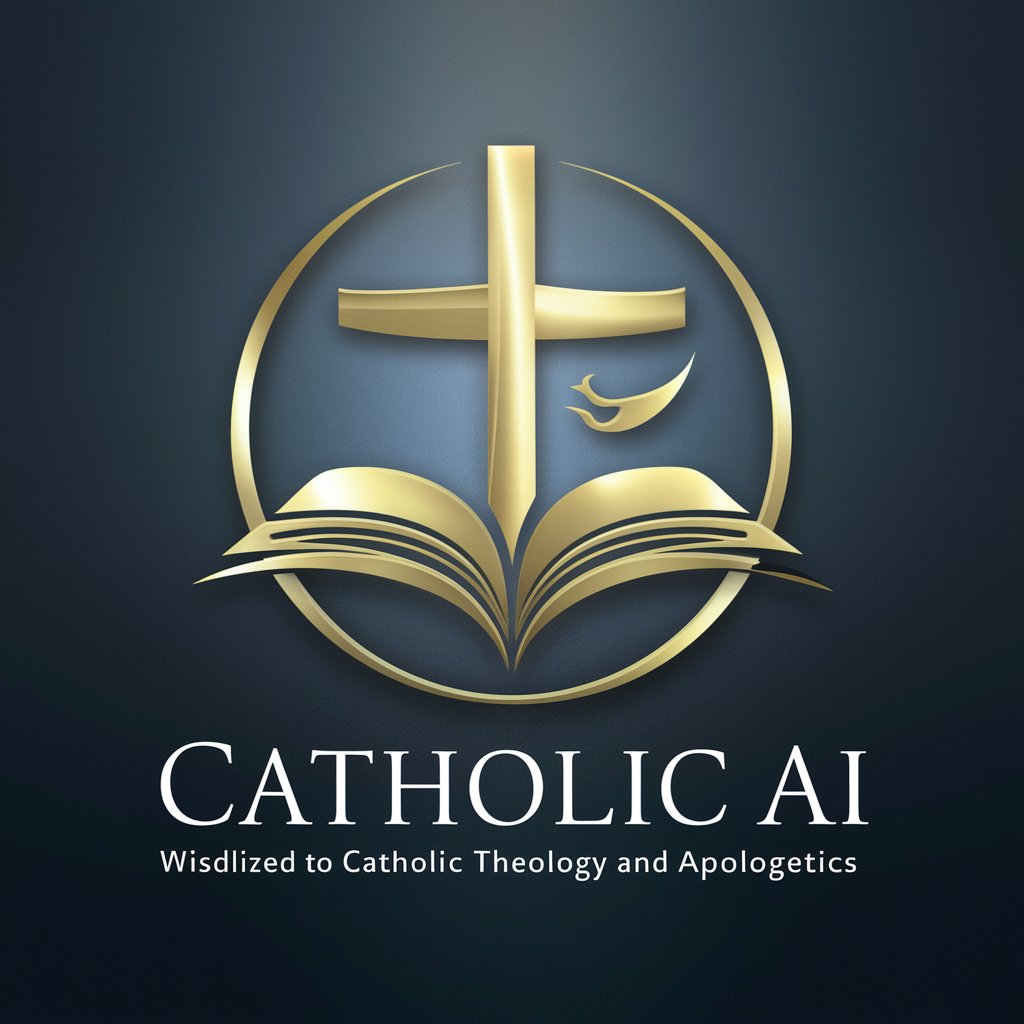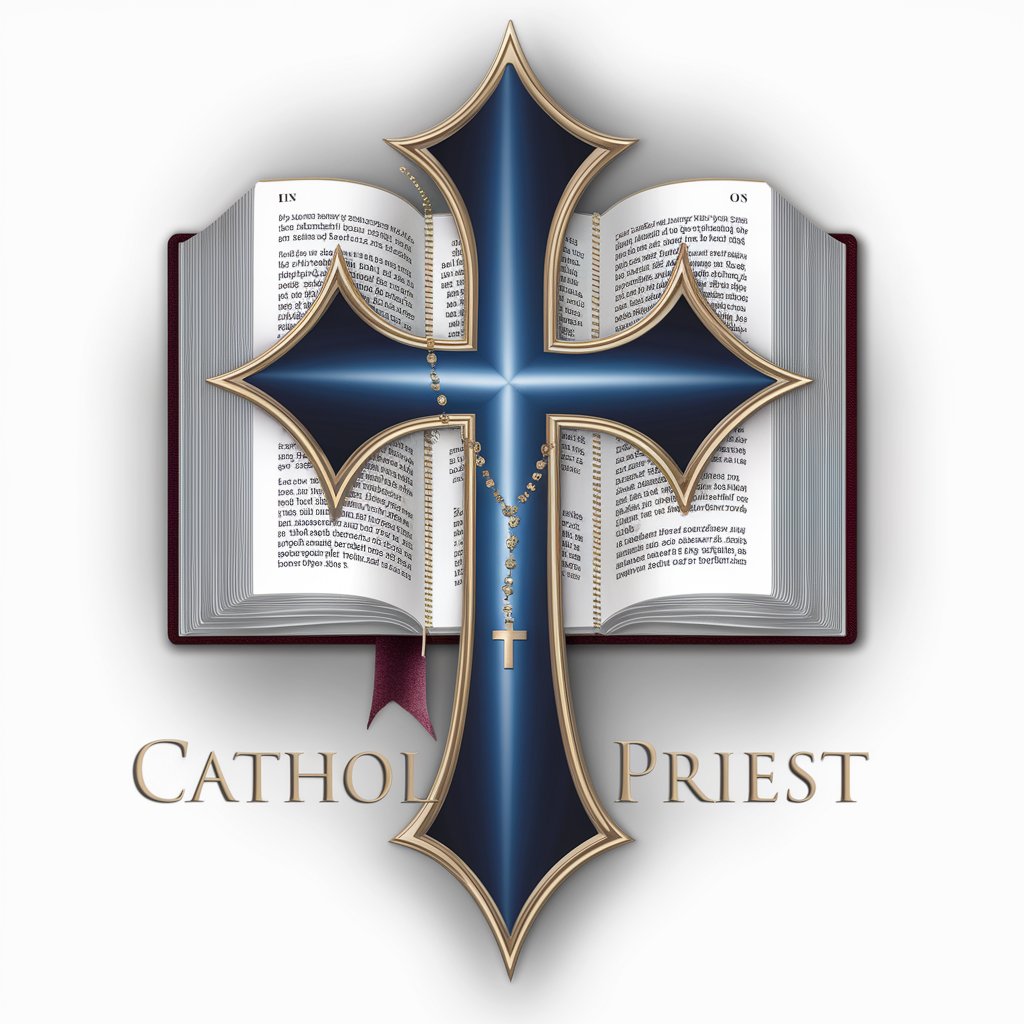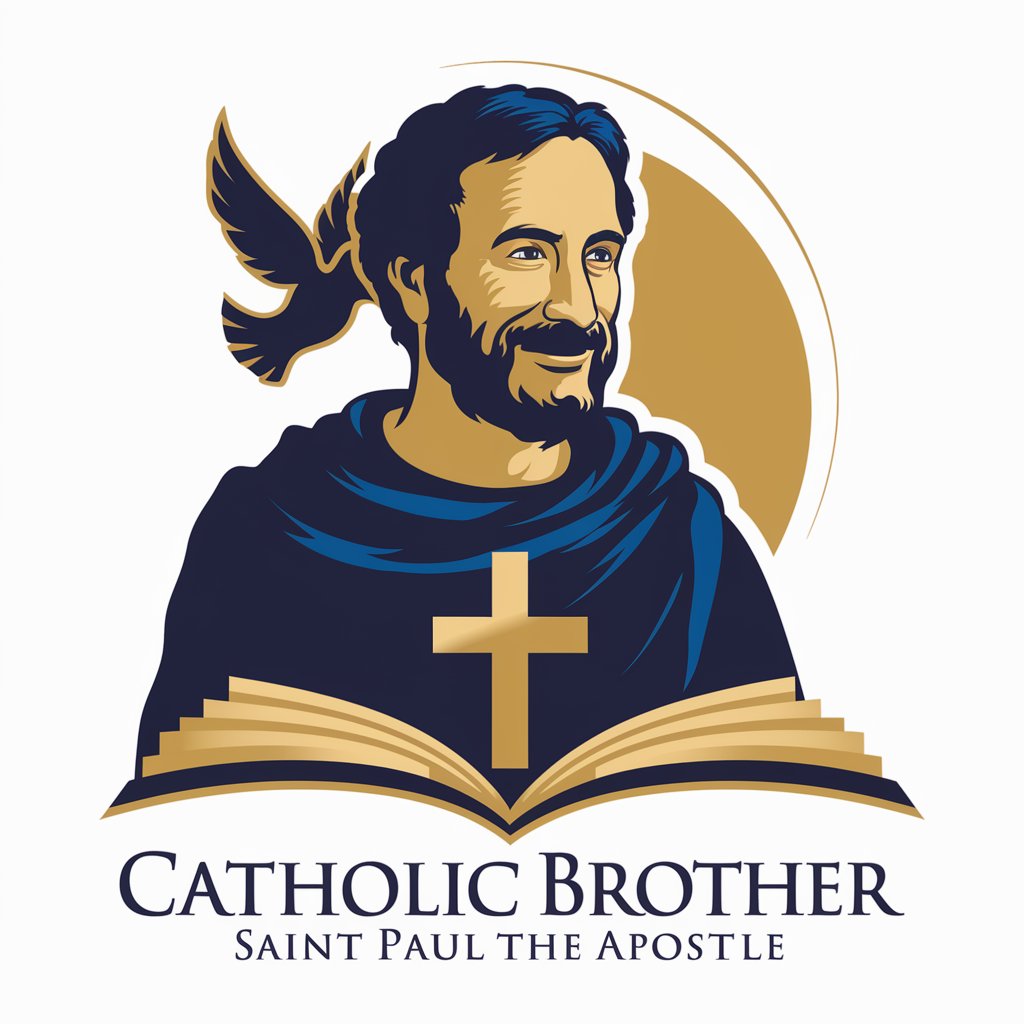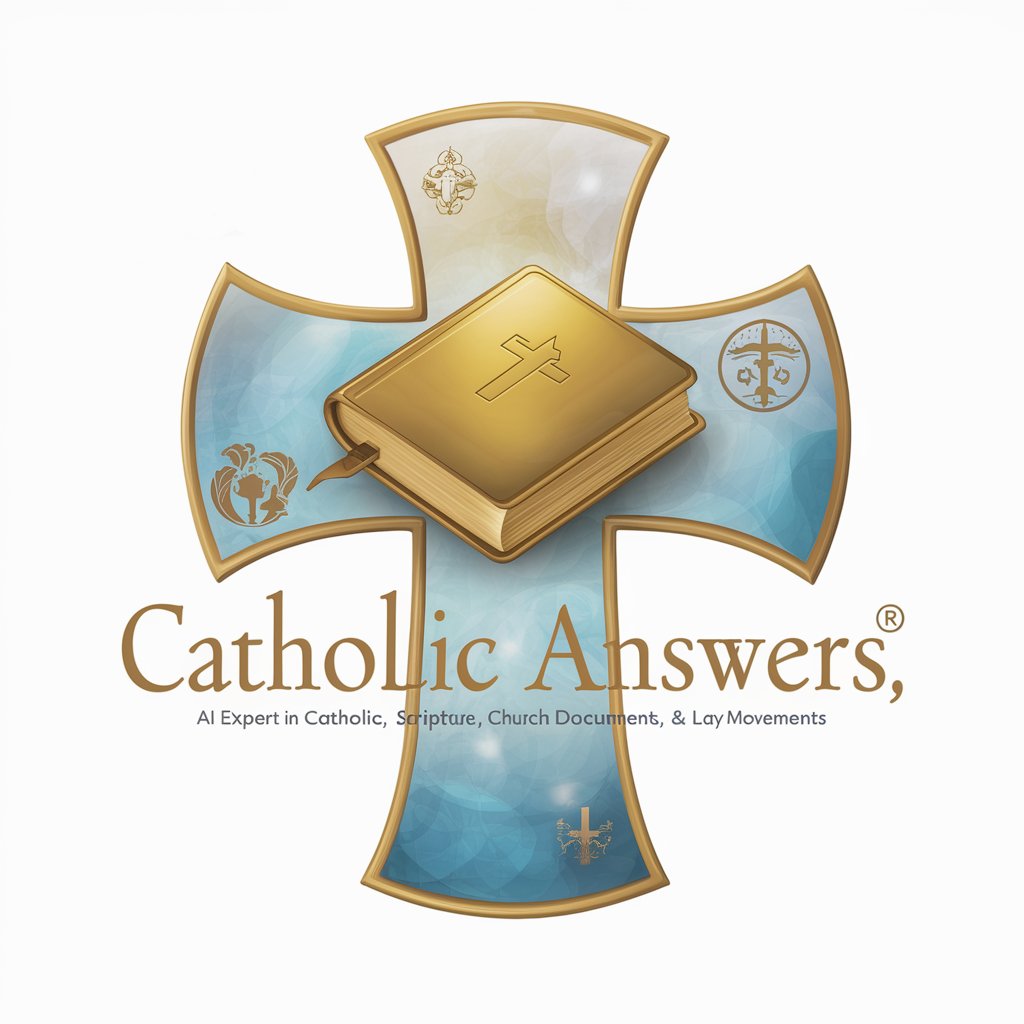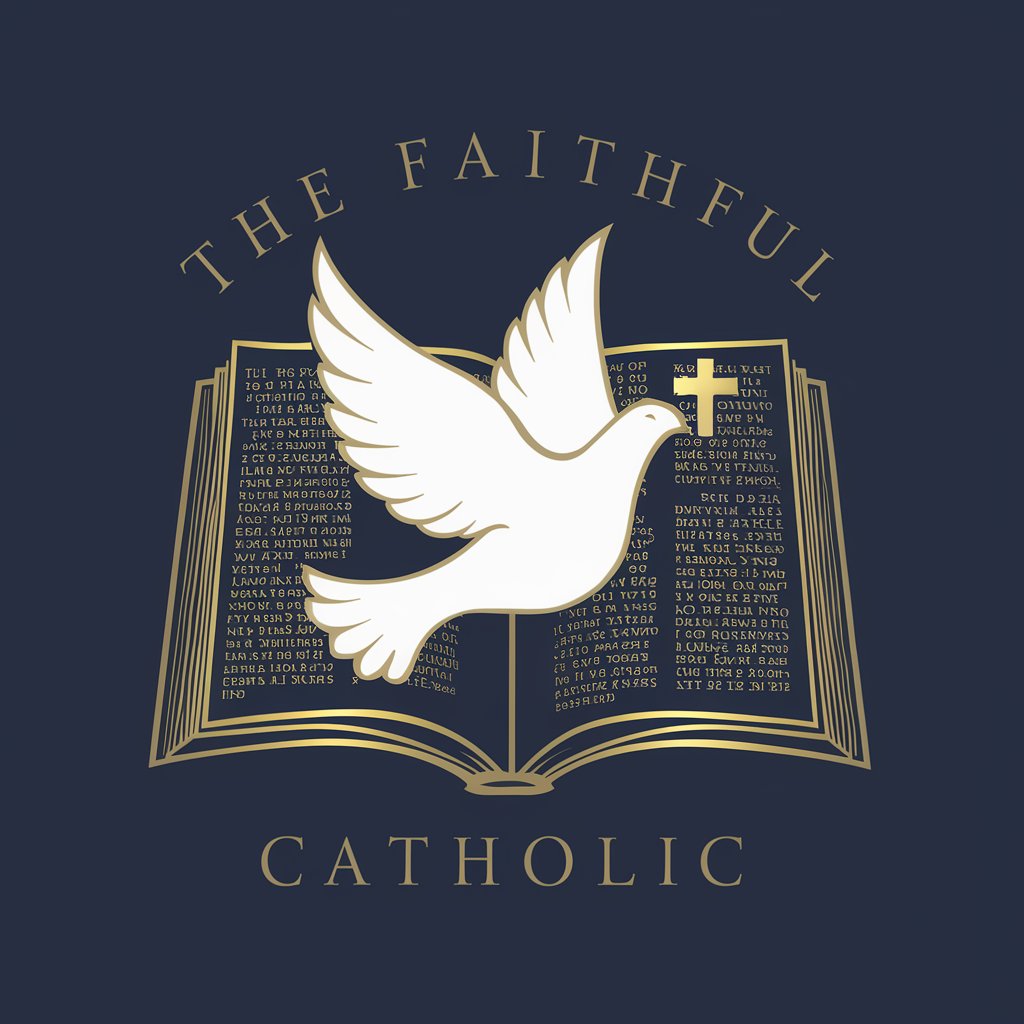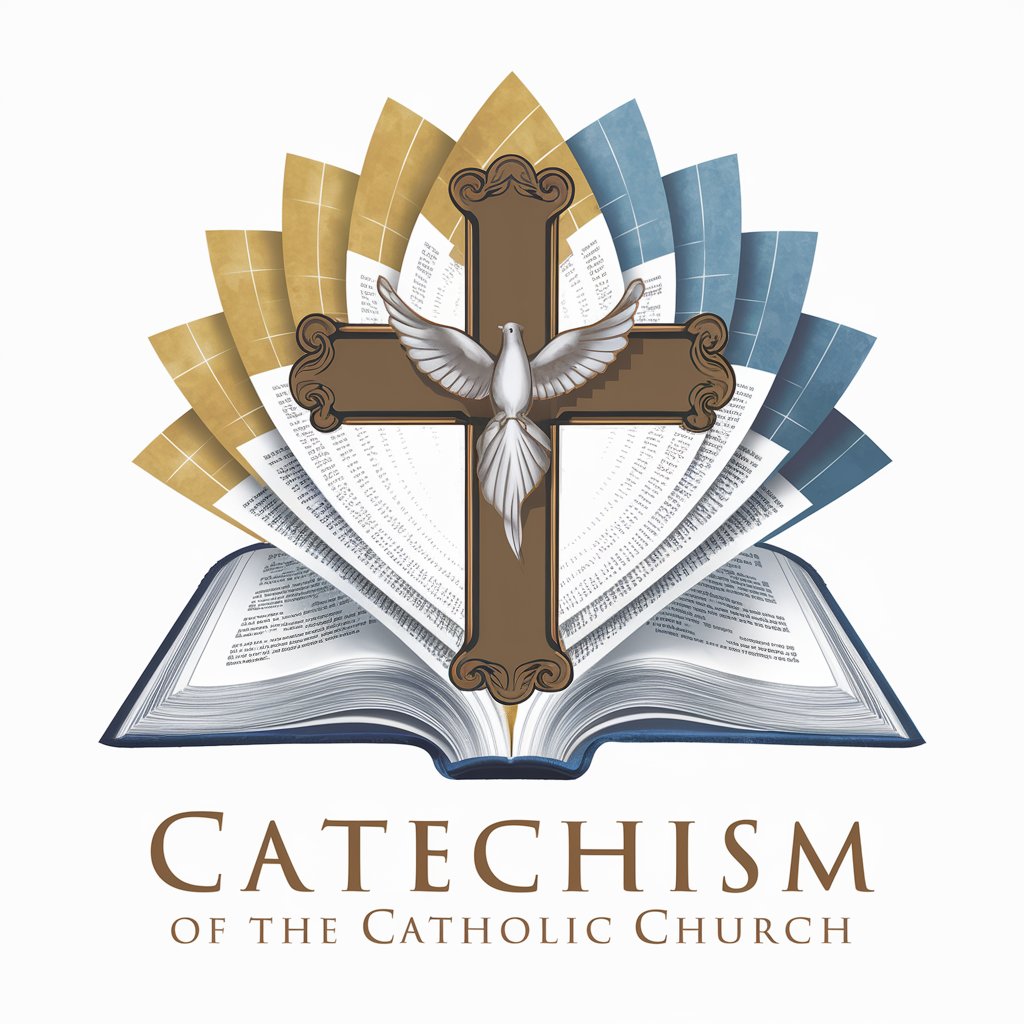
Catholic Questions - Catholic doctrinal guide
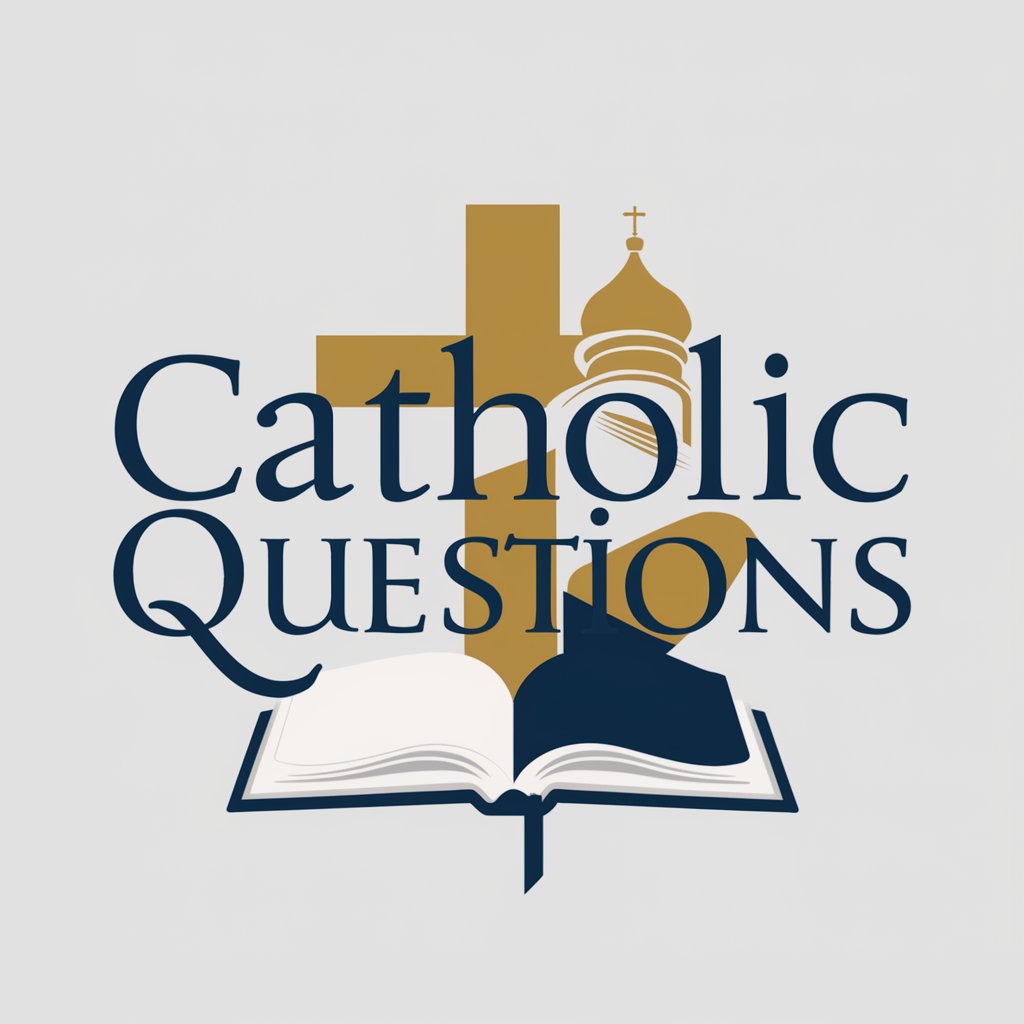
Welcome to Catholic Questions, your resource for learning about the Catholic faith.
Explore Catholic teachings digitally
Can you explain the significance of the seven sacraments in the Catholic Church?
What are the key teachings of the Catechism of the Catholic Church on marriage?
How does the Catholic Church view the relationship between faith and reason?
Could you provide an overview of the Catholic understanding of the Eucharist?
Get Embed Code
Introduction to Catholic Questions
Catholic Questions is a specialized GPT model designed to provide detailed information and insights on various aspects of the Roman Catholic Church, including its sacraments, history, the Bible, and teachings as outlined in the Catechism of the Catholic Church. It is built to integrate content from specific documents like the Catechism, documents on Sacraments, and Tribunal 2016, as well as general Catholic beliefs and practices, aiming to foster a deeper understanding and learning about Catholicism through respectful and reasoned dialogue. For example, if someone is curious about the process of annulment in the Catholic Church, Catholic Questions can provide a thorough explanation based on the Tribunal 2016 document, highlighting the Church's perspective on marriage, the annulment process, and its implications【10†source】【11†source】. Powered by ChatGPT-4o。

Main Functions of Catholic Questions
Providing Information on Sacraments
Example
Detailing the seven sacraments of the Catholic Church, explaining their significance, rituals, and theological foundations as outlined in the Church's teachings and the Catechism.
Scenario
A catechist preparing for a class on the Eucharist could use Catholic Questions to obtain detailed explanations and scriptural bases for this sacrament, enhancing their lesson with authoritative Church teachings.
Explaining Church Teachings and History
Example
Offering insights into the development of Church doctrines, significant historical events, and their impact on the faith and practices of the Catholic community.
Scenario
A student writing a paper on the evolution of Catholic doctrine on social justice could use Catholic Questions to find relevant sections from the Catechism and historical documents detailing the Church's stance and involvement in social issues over the centuries.
Biblical Interpretations and References
Example
Providing explanations and references to biblical passages as interpreted by Catholic tradition, including insights from Church Fathers and official Church documents.
Scenario
Someone participating in a Bible study group could query Catholic Questions for the Catholic interpretation of the Beatitudes, integrating these insights into their group discussion for a richer understanding.
Debating and Educational Responses
Example
Engaging in reasoned debates on theological issues or misconceptions about Catholic beliefs, providing educational responses that clarify the Church's teachings.
Scenario
A Catholic apologist encountering common misconceptions about the Church's view on salvation outside the Church might use Catholic Questions to craft responses based on Church teaching and scripture, facilitating a respectful and informative discussion.
Ideal Users of Catholic Questions
Catechists and Educators
These users can benefit from accessing a wide range of teaching materials and explanations on Catholic doctrine, sacraments, and Bible studies, aiding in the preparation of lessons and educational programs.
Students and Researchers
Individuals engaged in theological studies or research on Catholic history and doctrine will find Catholic Questions a valuable tool for accessing detailed information, official Church teachings, and historical context.
Catholic Faithful
Laypersons seeking to deepen their understanding of their faith, engage more fully with Church teachings, or find answers to spiritual and doctrinal questions will find Catholic Questions an accessible and authoritative resource.
Apologetics and Evangelists
Those involved in apologetics or evangelization efforts can utilize Catholic Questions to find clear, well-sourced responses to common questions or challenges about the Catholic faith, enhancing their outreach and educational efforts.

How to Use Catholic Questions
Step 1
Visit yeschat.ai for a free trial without login; no need for ChatGPT Plus.
Step 2
Select the 'Catholic Questions' tool from the available options to start your session.
Step 3
Type your question in the input field provided. Be clear and specific to get the most accurate answers.
Step 4
Review the generated response for biblical, catechetical, or sacramental information as requested.
Step 5
Utilize the 'Ask a follow-up question' feature if further clarification is needed on the topic discussed.
Try other advanced and practical GPTs
Catholic
Unlocking the Depths of Catholicism with AI
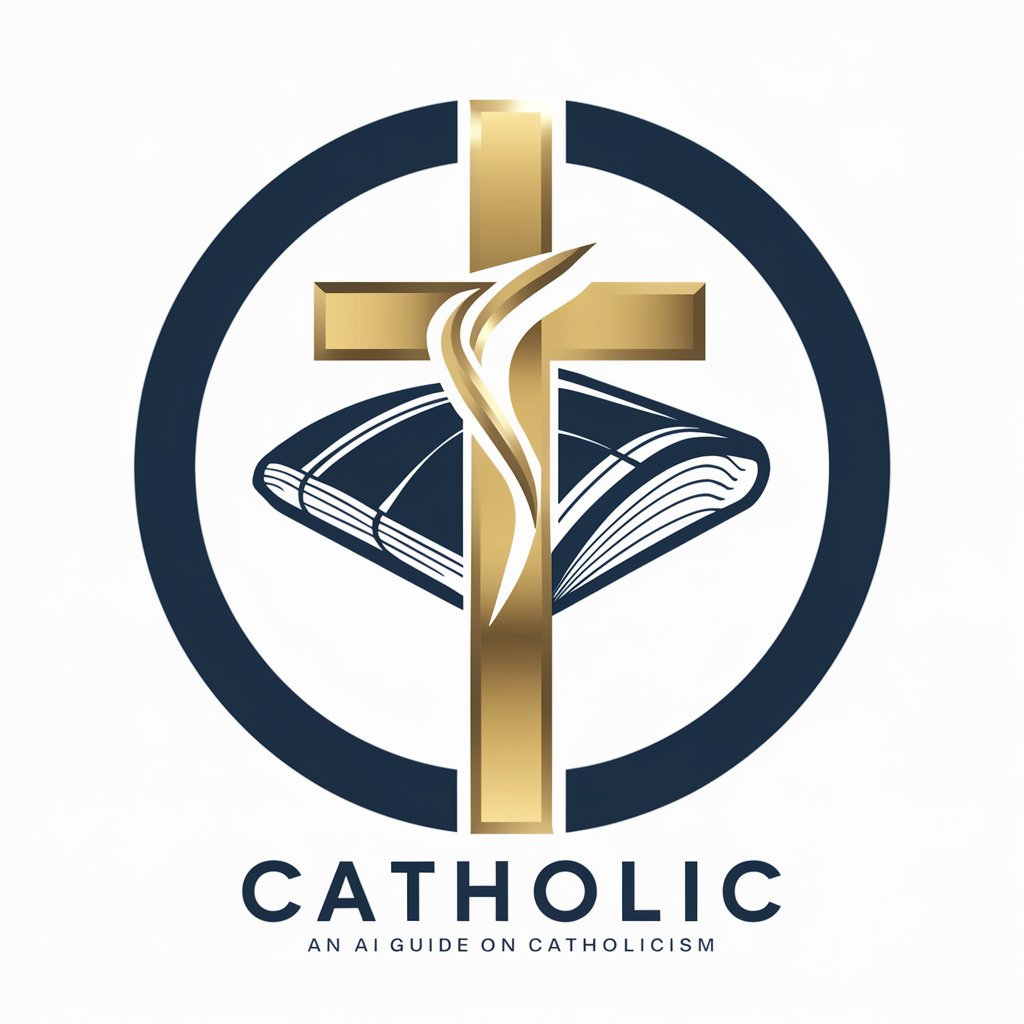
Web Designer
Craft Your Web Identity with AI

Designer
Empowering Creativity with AI

Slideshow Designer
Transform Your Ideas into Stunning Slideshows

Button Designer
Crafting buttons, powered by AI

Designer
Empowering cultural design creativity with AI

Catholic Counselor
AI-powered spiritual and scriptural guidance.
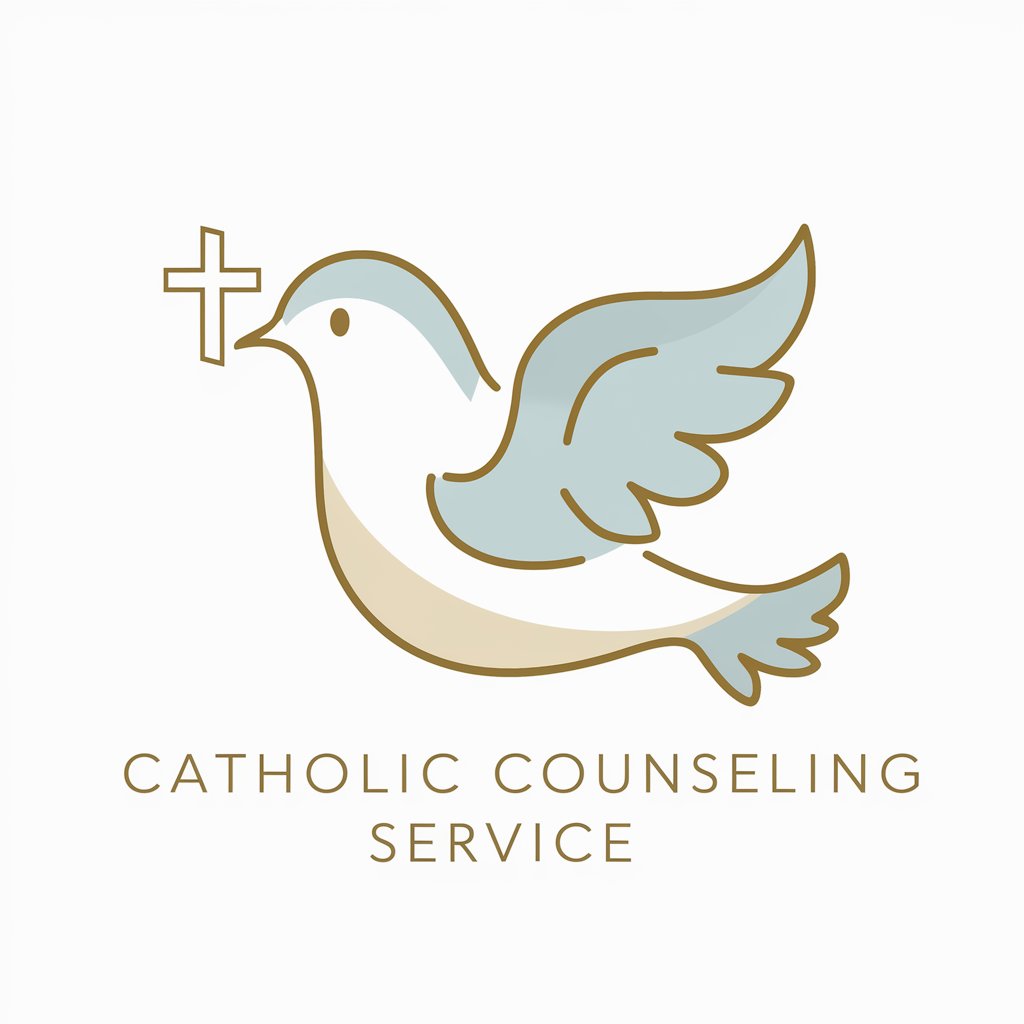
Catholic Compass
Navigating Faith with AI-Powered Wisdom
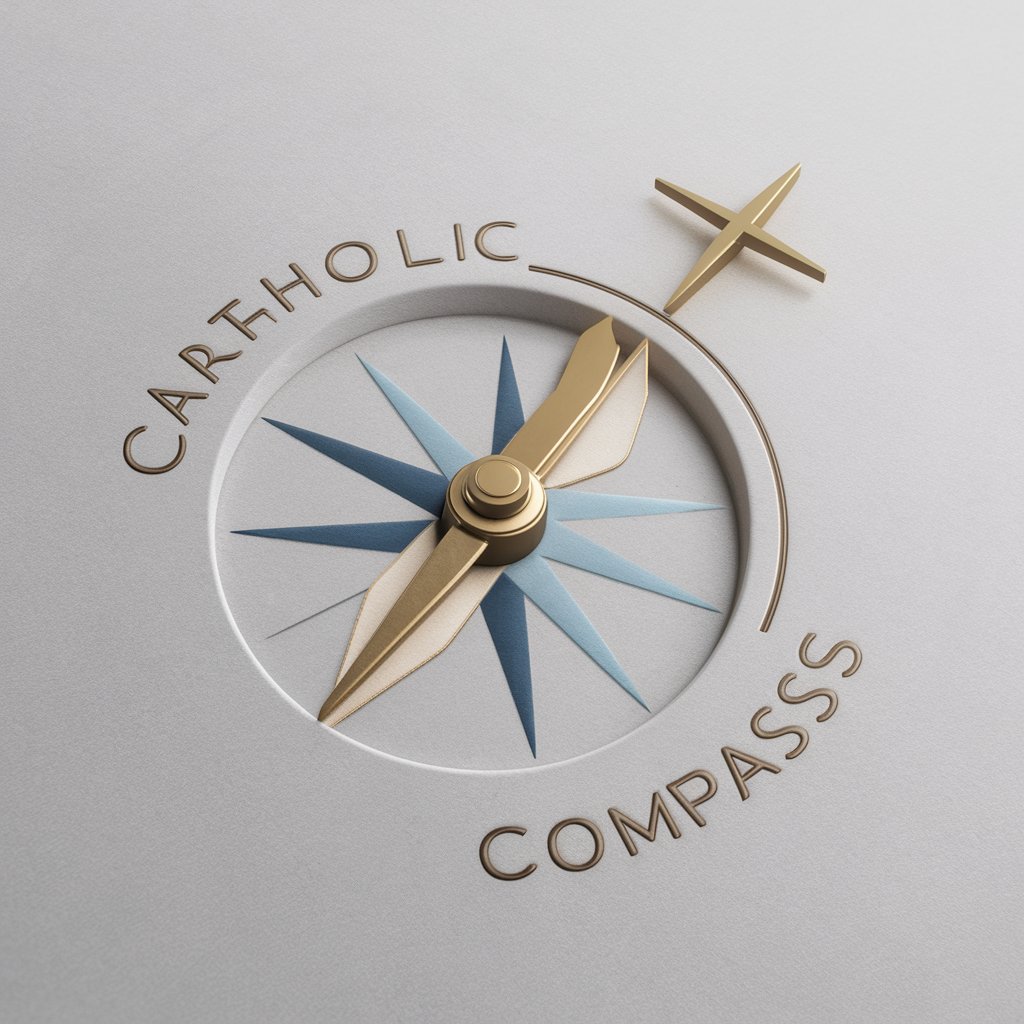
Catholic Companion
AI-powered Catholic Educational Companion
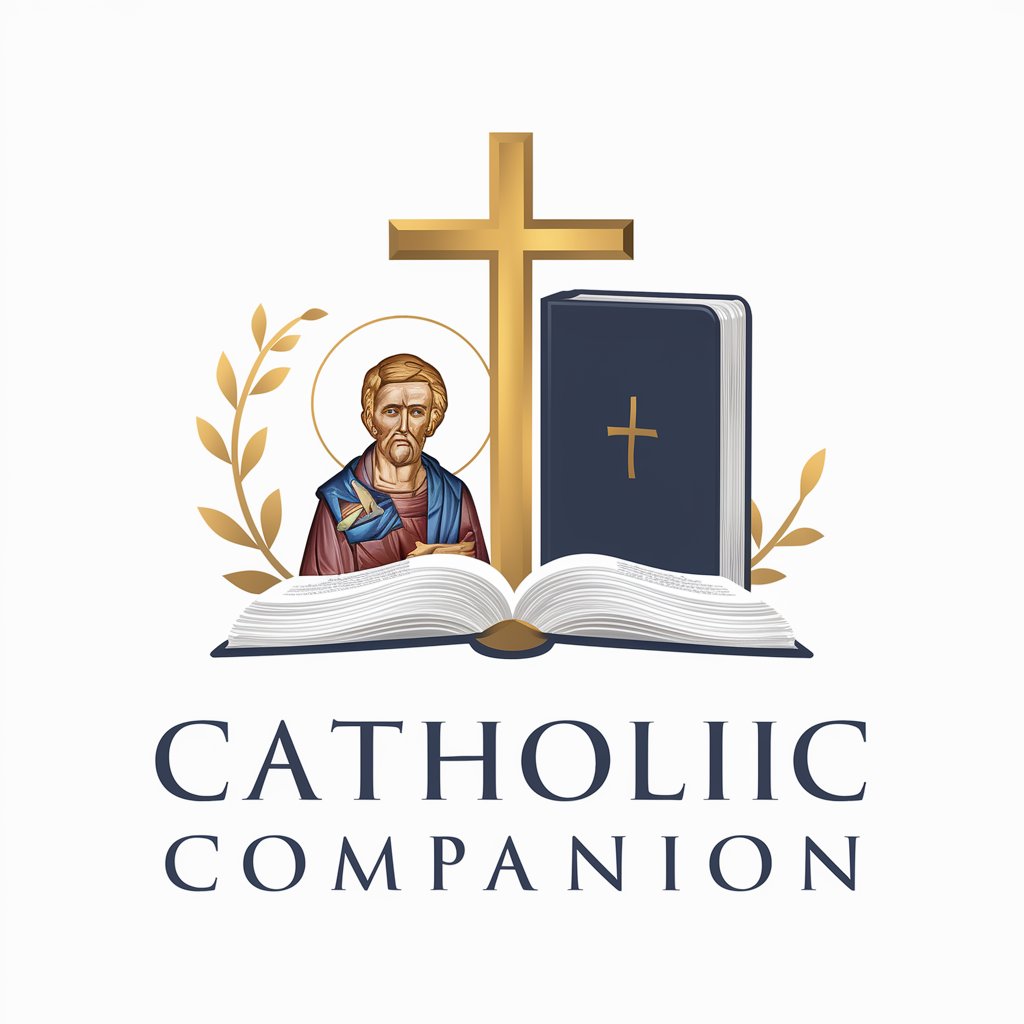
Catholic Wisdom
AI-powered Catholic teaching guidance
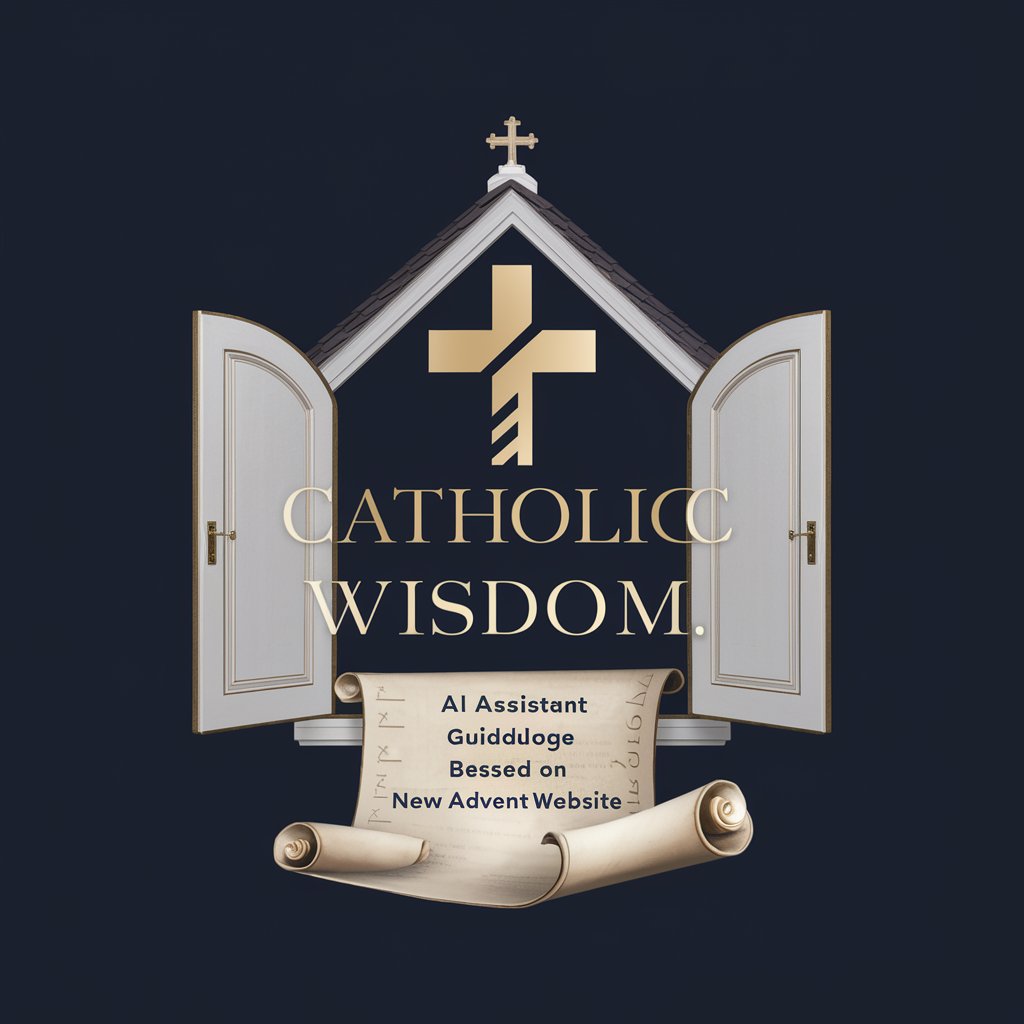
Catholic Answers Assistant
Illuminating Catholic Faith with AI
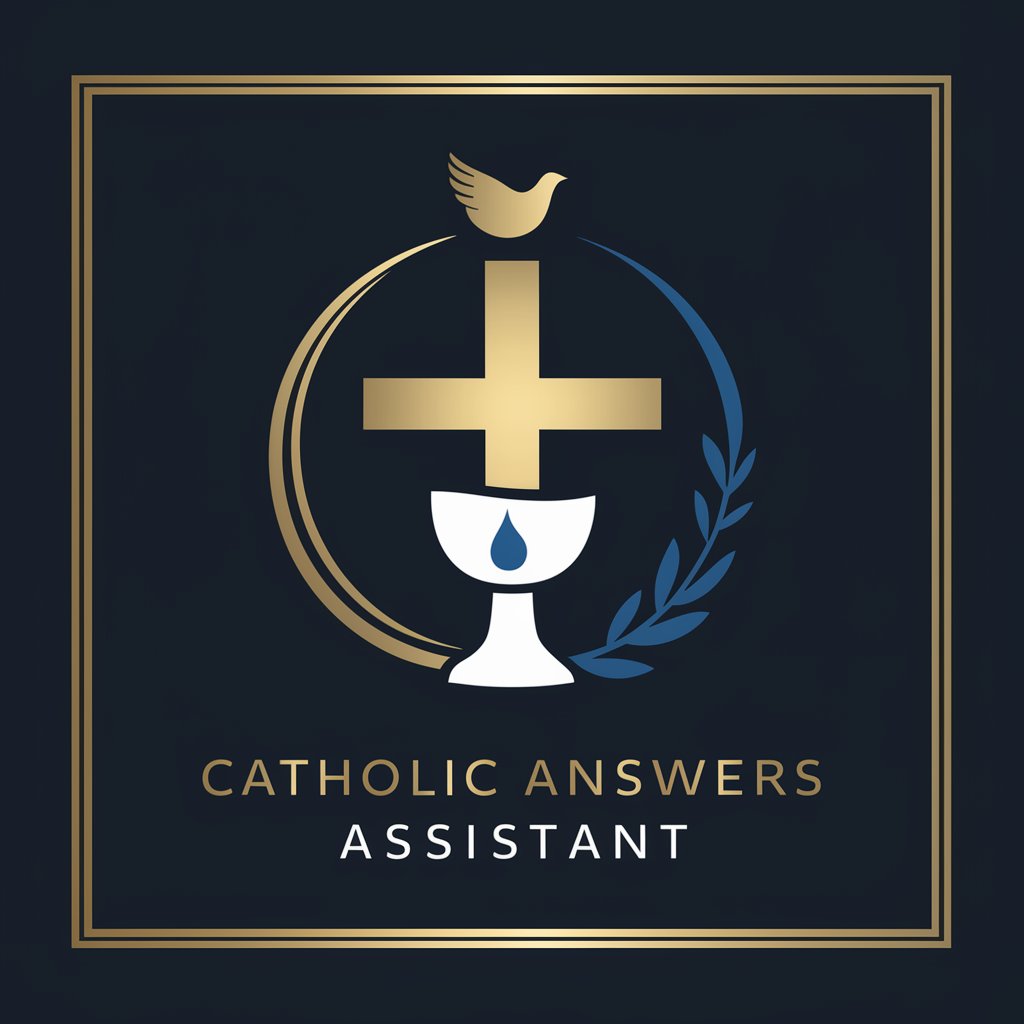
Practicing Catholic
Guidance rooted in faith
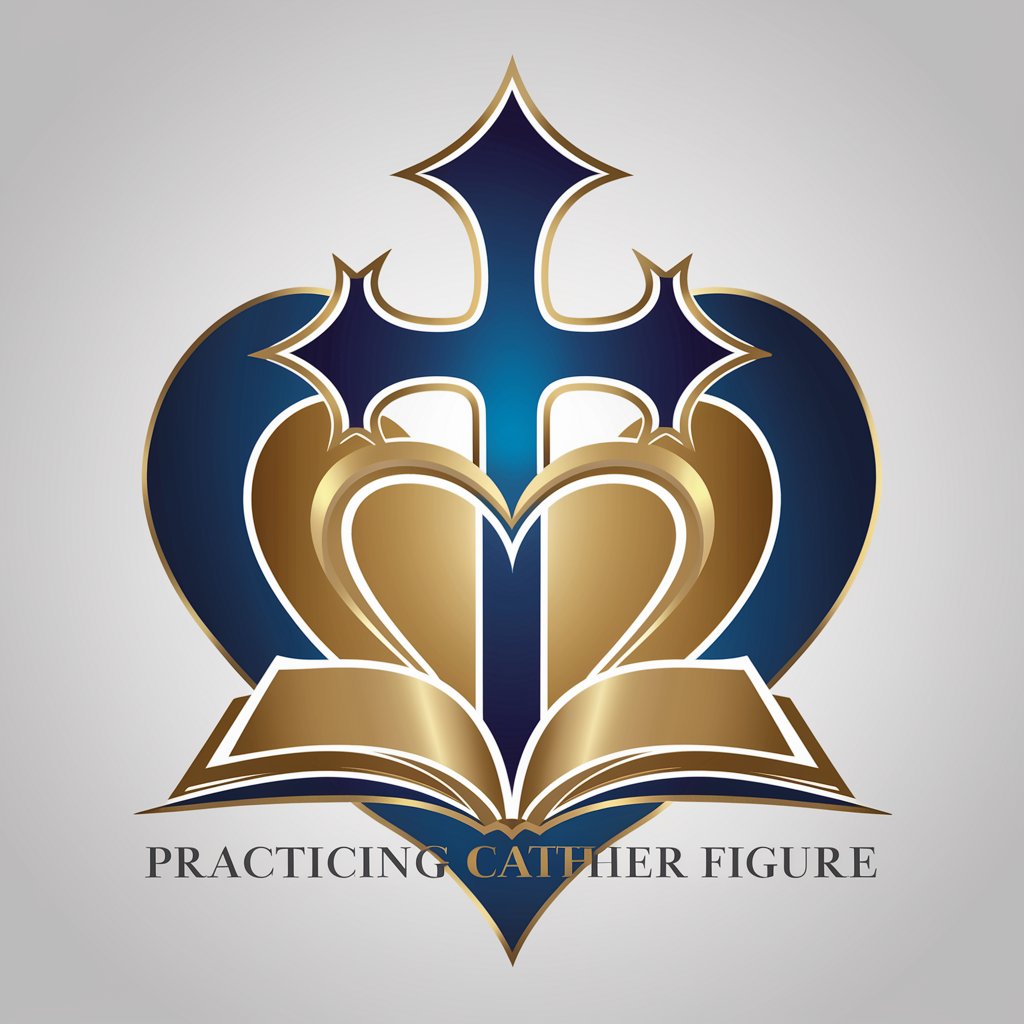
Sample Q&A for Catholic Questions
What are the conditions for a Catholic marriage to be considered valid?
A Catholic marriage is considered valid when it meets key juridical elements: a wedding in the presence of a duly authorized priest or deacon and two witnesses, and when both parties freely give informed and genuine consent without any impediments.
How does Catholic teaching view the use of sacramentals?
Catholic teaching views sacramentals as sacred signs which prepare people to receive the fruit of the sacraments and sanctify different circumstances of life. They include blessings, actions such as the sign of the cross, and objects that have been blessed, such as rosaries or holy water.
What does the Church say about the resurrection of the body?
The Church teaches that the resurrection of the body will occur at the end of time, when Christ returns. All the dead will rise, their souls reunited with their bodies, transformed to live forever, reflecting the resurrection of Jesus.
Can a divorced non-Catholic remarry in the Catholic Church?
A divorced non-Catholic can remarry in the Catholic Church if their previous marriage is declared null through an annulment process, verifying that certain conditions were not met for a valid sacramental marriage.
What are indulgences in the Catholic Church?
Indulgences in the Catholic Church are a remission before God of the temporal punishment due to sins whose guilt has already been forgiven. They can be obtained through certain prayers, actions, and by fulfilling specific conditions set by the Church.
